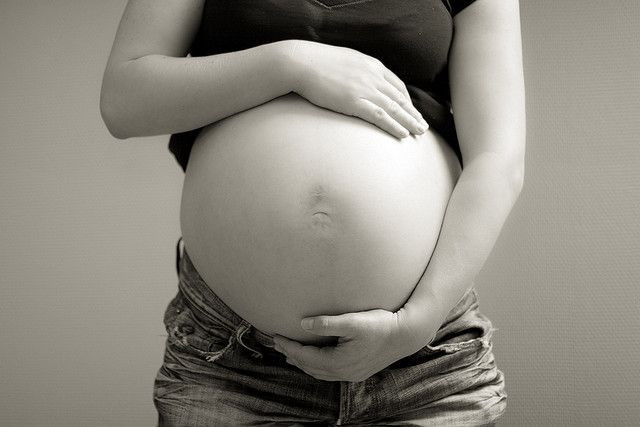Pregnancy Could Help Hepatitis C Develop Into Hardier Strain; Viruses Able To Replicate Faster Could Be Passed Down

Hepatitis C is a blood-borne disease that causes liver damage and can lead to liver cancer as well, according to the Centers for Disease Control and Prevention (CDC). Of those who become exposed, about 75 to 85 percent develop chronic hepatitis C. Pregnant women have a one in four chance of passing the disease to their baby. Although the risk is small, a new study finds that pregnancy could help the virus develop into one that’s better at replicating.
Researchers from The Research Institute at Nationwide Children’s Hospital monitored two women with hepatitis C over the course of five years. They watched the evolution of the virus before, during, and after each woman’s’ pregnancies — both had two children during that time. They found that certain immune processes that occur during pregnancy combined with the natural processes of the virus to create a strain capable of replicating faster. This strain was subsequently passed on by one of the women during birth.
“We found that better replicating versions of the virus emerged during pregnancy, and these ‘fit’ viruses were passed to the babies,” Dr. Jonathan R. Honegger, an infectious disease specialist and lead researcher of the study, said in a statement. “The findings actually provide unique insight into the impact of pregnancy on the mothers’ control of viral infections, and also a striking illustration of this virus’ ability to adapt to changing environmental pressures.”
A Combination of Natural Processes Helps Hepatitis C Strains Become Hardier
Hepatitis C spreads throughout the immune system by mutating — called immune escape mutations — certain parts of its genome, making CD8+ T-cells unable to find them and destroy them. But undergoing this process also disables some of its ability to replicate.
At the same time, pregnancy causes a woman’s immune system to withhold T-cells in order to prevent any attack on the growing fetus. This in turn, allows the virus to replicate without opposition by T-cells — a process that had been noticed before, but left unexplained. In this case, escape mutations were lost, meaning that the virus didn’t need to mutate. This led to a hardier virus, and one that was able to replicate faster, being passed on to the child.
“The loss of those immune escape mutations from hepatitis C during pregnancy provided strong evidence that the immune changes of pregnancy, intended to protect the fetus, significantly impaired the ability of CD8+ T-cells to exert pressure on the virus,” Dr. Honegger said in the statement.
The researchers aren’t sure if a stronger, quicker-replicating virus would do more harm to the baby over a longer term. They suspect that “if the baby doesn’t mount a swift and strong immune response, then fast viral replication may increase the risk of persistent infection in the baby.” Still, more research into the natural history of the virus is necessary, they said.
About 3.2 million Americans currently live with hepatitis C infection, and most of them don’t know about it. Although minor symptoms, such as darker urine and joint pain, might show up early on, few people experience these symptoms. Decades later, a patient may find out they have the disease when they learn that they have liver damage, such as cirrhosis — scarring of the tissue — or worse, liver cancer.
Source: Honegger J, Kim S, Price A, et al. Loss of immune escape mutations during persistent HCV infection in pregnancy enhances replication of vertically transmitted viruses. Nature Medicine. 2013.
Published by Medicaldaily.com



























